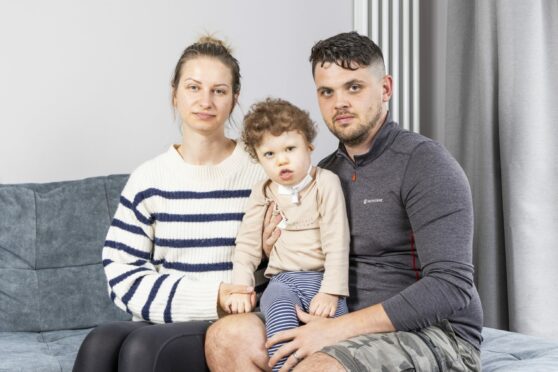
Families caring for seriously ill children at home are struggling to navigate the system for government support for heating bills.
The application forms are so complicated and time-consuming that at least 25% of families fail to complete them, according to children’s hospice, CHAS.
Parents are often too exhausted for the hurdle of bank statements and bills needed, the charity said.
The news comes as families face yet another hike in bills in January of almost £200 a year after Ofgem increased its price cap last week.
Research shows the families of sick and seriously disabled children are paying twice the average family bill.
CHAS is urging the Scottish Government to give them a direct heating lifeline of £25 a week. Rami Okasha, CHAS chief executive said: “With upcoming energy price hikes, CHAS is deeply concerned about how the families we support will manage winter energy costs. While the Scottish Government’s Fuel Insecurity Fund (FIF) is welcome, many families struggle with the application process, even with CHAS’ support.
“One in four families is too busy caring for a seriously ill child to provide us with enough information to complete a claim. Others don’t have the time or energy to even start a claim, and those most in debt are ineligible.
“We are asking the Scottish Government to provide a fixed sum of £25 a week directly to each family of a child with a life-shortening condition, to help cover energy costs.”
Cost of caring: Nursing union backs campaign to cut bills for families looking after vulnerable kids
CHAS’ calls for more compassionate heating cost support is backed by Carers Trust Scotland.
Its research reveals that 75% of them are worried about being able to afford energy bills with 58% feeling ignored by the Scottish Government.
“Around 12% of unpaid carers has used a food bank,” Carers Trust Scotland reveals.
This compares with 3% of the general population.
The Sunday Post recently revealed the plight of grieving Rosyth mum Lizzie McCartney, who is more than £5,000 in debt after nursing her late son Marley at home. “You cannot turn down the heating on a dying child,” she said.
The Scottish Government said: “No families of terminally ill children and young people should have to worry about their finances at such a difficult time, which is why we have introduced a range of support measures.”
The families are backing the Sunday Post’s Cost of Caring campaign for more support and an energy tariff in discounted energy bills.
The campaign is also backed by the Royal College of Paediatrics Child Health along with other royal colleges and charities.
We also told the story of the challenges Max and Kasia Nisbet, from Bo’ness in West Lothian, face in paying for energy bills to care for their son, Troy, two.
He has major heart defects, is deaf, has restricted sight and is tube-fed.
Max said: “Paying energy bills is a constant juggling act.”

Enjoy the convenience of having The Sunday Post delivered as a digital ePaper straight to your smartphone, tablet or computer.
Subscribe for only £5.49 a month and enjoy all the benefits of the printed paper as a digital replica.
Subscribe